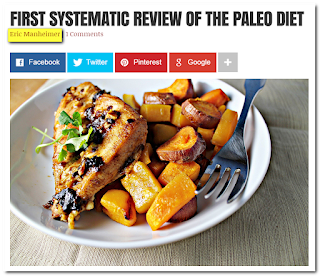Is Gary Taubes Trying To Rescue His Legacy?

It seems to me that enough folks, including Kevin Hall PhD himself , have weighed in on the specifics of his recent LC ≠ more [body] fat burning smack down metabolic ward study that I didn't have the need to. I do, however, have a bit of a retrospective look at things in the works. But Gary Taubes has seen fit to respond in the New York Times, in most ridiculous fashion: Diet Advice that Ignores Hunger . First of all, Gary Taubes is no young whippersnapper, in fact he's a bit older than me. I remind folks of this not to pick on his age, but to put some context to how ridiculous this notion that hunger on extreme diets has been ignored. Does he not recall the widespread use of amphetamines and their OTC counterparts in the form of Dexatrim and such? Seriously ... diet pills to curb hunger have always been around, they've just fallen a bit out of favor due to the inefficacy of most. If you really want a flas...






